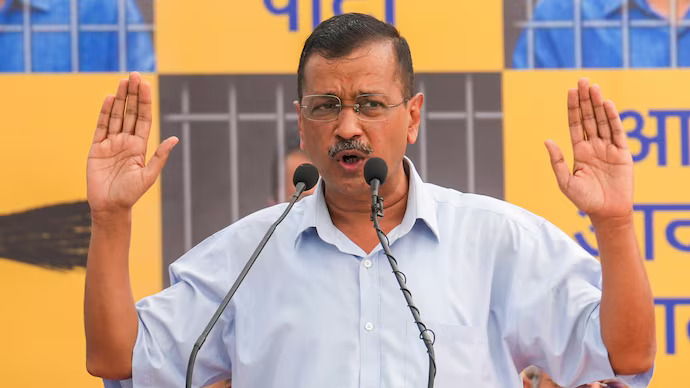
Introduction
Arvind Kejriwal Latest News, the Chief Minister of Delhi, has recently been granted bail in the controversial excise policy case. This case has garnered significant media attention and has implications for both the political landscape and the legal proceedings in India. In this article, we will explore the details of the case, the court’s decision, and the broader political reactions.
सत्यमेव जयते 🙏 pic.twitter.com/zZZjqve7wD
— AAP (@AamAadmiParty) June 20, 2024
Background of the Excise Policy Case
The Delhi excise policy case revolves around allegations of irregularities and corruption in the formulation and implementation of the state’s liquor policy. The case has been under investigation for several months, with Kejriwal being one of the key figures scrutinized.
Overview of Delhi’s Excise Policy
Delhi’s excise policy was introduced with the aim of increasing government revenue and reducing the illegal liquor trade. However, it faced criticism for allegedly favouring certain private players and creating monopolistic conditions.
Allegations and Investigations
The allegations against Kejriwal and other officials include corruption, favouritism, and financial irregularities. The investigation has been led by the Enforcement Directorate (ED) and the Central Bureau of Investigation (CBI), focusing on the approval process of the policy and the alleged kickbacks received by officials.
Court Proceedings and Bail Decision
The court proceedings in the excise policy case have been closely watched by the public and the media. Kejriwal’s legal team presented a robust defence, arguing that the charges were politically motivated and lacked substantial evidence.
Key Arguments by the Defense
The defence team argued that the excise policy was implemented with the intention of reforming the liquor trade in Delhi and that the allegations were baseless. They also pointed out procedural lapses in the investigation and questioned the credibility of the evidence presented.
Court’s Rationale for Granting Bail
The court, after reviewing the arguments, granted bail to Kejriwal. The judge noted that the evidence presented was not sufficient to warrant continued detention and emphasized the need for a fair trial. The bail conditions included restrictions on travel and regular appearances in court.
Political Reactions and Implications
The bail decision has elicited strong reactions from various political parties. The Aam Aadmi Party (AAP) hailed the decision as a victory for truth and justice, while the opposition parties criticized it as a setback for anti-corruption efforts.
AAP’s Response
AAP leaders celebrated the court’s decision, with many, including Deputy Chief Minister Manish Sisodia, asserting that the charges were part of a political vendetta. The party maintained that the excise policy was transparent and aimed at curbing corruption in the liquor trade.
Opposition’s Critique
The Bharatiya Janata Party (BJP) and other opposition parties condemned the bail decision, arguing that it undermined the ongoing investigation. They called for a thorough probe and stringent action against those involved in the alleged corruption.
Broader Impact on Indian Politics
The excise policy case and the subsequent bail decision have broader implications for Indian politics. It has highlighted the contentious nature of corruption allegations and the role of the judiciary in high-profile cases.
Public Perception and Media Coverage
The case has received extensive media coverage, influencing public perception. While some view the bail as a vindication for Kejriwal, others see it as a reflection of the challenges in tackling corruption at high levels.
Future Legal and Political Developments
The case is likely to have long-term ramifications, with potential impacts on future policy-making and political alignments. The ongoing investigations and court proceedings will continue to shape the political narrative in Delhi and beyond.
FAQs
What is the Delhi excise policy case?
The Delhi excise policy case involves allegations of corruption and irregularities in the formulation and implementation of Delhi’s liquor policy, aimed at increasing government revenue and reducing illegal liquor trade.
Why was Arvind Kejriwal granted bail in the excise policy case?
Kejriwal was granted bail because the court found the evidence presented insufficient to justify continued detention and emphasized the need for a fair trial.
What are the key allegations in the excise policy case?
The key allegations include corruption, favouritism, and financial irregularities in the approval and implementation of the excise policy.
How has the AAP responded to the bail decision?
The AAP has hailed the bail decision as a victory for truth and justice, asserting that the charges were politically motivated and that the policy was transparent.
What has been the opposition’s reaction to the bail decision?
The opposition, particularly the BJP, has criticized the bail decision, arguing that it undermines the investigation and calling for stringent action against those involved.
What are the broader implications of the excise policy case?
The case has significant implications for Indian politics, influencing public perception, media coverage, and future legal and political developments.
Conclusion
The bail granted to Arvind Kejriwal in the excise policy case marks a significant development in the ongoing legal and political saga. While the court’s decision has provided temporary relief to Kejriwal, the case continues to unfold, with broader implications for governance, anti-corruption efforts, and political dynamics in India. The coming months will be crucial in determining the outcome of this high-profile case and its impact on the Indian political landscape.
Follow Nirnay News for more.
